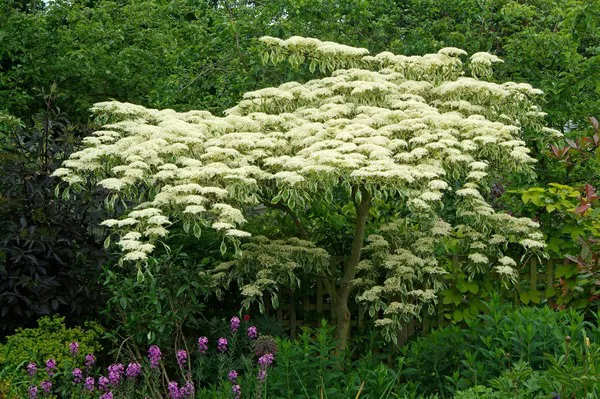Grace Powell’s journey into flower farming is one of resilience and a deep connection to nature. As she awaited the birth of her first child, she received the devastating news that she had cancer. With treatment on hold during her pregnancy, Grace waited patiently for her son’s arrival. After his birth, she had a brief week with him before undergoing radiation therapy. The subsequent months were marked by limited contact with her baby due to radiation risks.
In this trying period, Grace made a life-changing decision. She chose to stay at home with her son and turned to a passion she had inherited from her mother—flower gardening. What began as a pastime eventually blossomed into her own urban flower farm, known as Cranky Goose Hill Farm, situated in Lakeside, Montana. The farm’s mission: to provide the Flathead Valley with locally and organically grown flowers.
“I was already growing flowers and giving them away, but when the pandemic hit, I decided just to go out and start [the farm],” Grace explained.
Her mother, who had been an avid gardener, basket-weaver, and canner, had passed down a love for “the simpler things in life.” This heritage became the foundation for Grace’s journey into flower farming. She affectionately remembers her mother as a “feisty redhead,” an adventurous spirit who nurtured her children’s appreciation for growing and canning.
Although Cranky Goose Hill Farm started with just ten flower subscriptions, it has now grown to 50, and these subscriptions sell out every year. In addition to subscriptions, Grace offers floral arrangements for various occasions and provides wholesale options.
“Blacktail Grocery was the first to carry our flowers,” Grace proudly noted. “I asked them if they were interested, and they said, ‘Yeah, bring some in, and we’ll see how it goes,’ and they just flew off the shelf. They are our biggest supporters, and we still take our flowers there all summer long.”
The primary motivation behind Grace’s flower farm is to offer an eco-friendly alternative to the flowers typically found in grocery stores. Most of the flowers at supermarkets are not grown in the United States but are imported from various corners of the world. By choosing locally grown flowers from Cranky Goose Hill Farm, customers can significantly reduce their environmental footprint while ensuring their flowers are free from pesticides and herbicides.
“[Flowers] from stores are shipped in from overseas,” Grace explained. “Our flowers are not traveling as far, so you don’t have all the packaging with it, and you really cut down on a lot of waste when you buy local. It’s just like buying local food, and it makes a big impact not only on the shipping and the plastic but also the chemicals that are used. We’re not labeled organic, but we do grow all of our flowers organically.”
Lakeside’s challenging terrain, situated on the side of a mountain, poses difficulties for farming due to poor and rocky soil. Grace improves the soil quality by using leaves from neighbors for compost and importing her own soil. However, she aspires to expand the farm in the future, seeking more land in an area with better soil quality.
“It would be nice to be in an area like Somers. They’re a little bit warmer and have really great soil,” Grace expressed. “We’re called a micro farm, so we’re not quite a full acre. We would really like to venture out into more stores and get more locally grown flowers to the community and hopefully get some employees in the future.”
During the off-season, Grace crafts wreaths made from pine boughs and dried flowers, offering wreath-making classes at the Bigfork Art and Cultural Center.
Cranky Goose Hill Farm derives its name from two resident geese, Norman and Jessie, named after characters in the iconic Montana film, “A River Runs Through It.”
“When we lived in Dillon, someone from the forestry department asked if I wanted to rescue some geese, and I said yes. We thought they were both female, but they’re a mated pair,” Grace chuckled.
The farm is also home to several chickens and ducks, including an adventurous Cayuga black duck named Pickles and her companion, Parsley.
“Pickles goes kayaking and paddleboarding with me,” Grace shared. “She’s not really cuddly, but she’ll come inside and sit on my lap, and she has a little leash she can wear.”
Amid her bustling life of tending to her flowers and her feathered friends, Grace expresses her gratitude for the unwavering support from the Lakeside community.
“I love being out here, being with the animals, and being with the flowers,” Grace remarked. “I have really loyal and awesome customers, and I don’t see myself doing anything else.”


